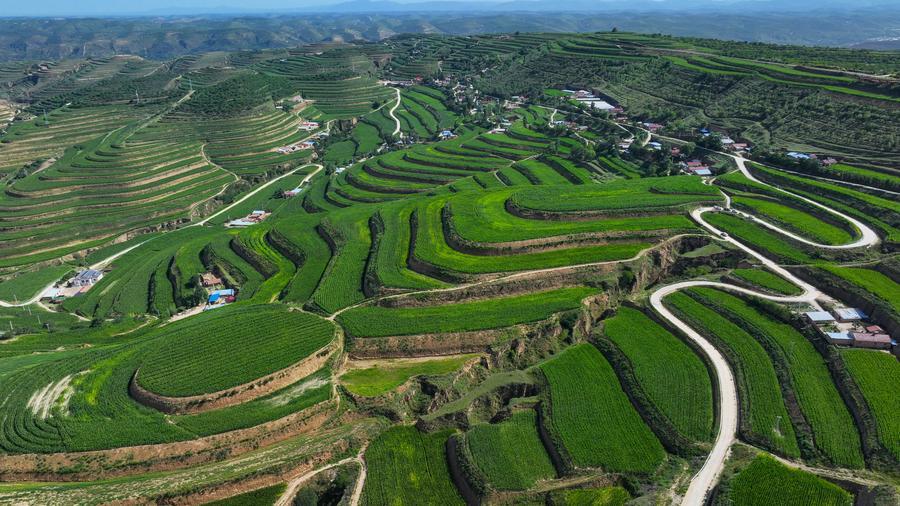RIYADH, Dec. 12 (Xinhua) -- A senior World Bank environmental official applauded the transformative efforts of northwest China's Ningxia Hui Autonomous Region in reversing desertification, highlighting China's commitment to green development.
In an interview with Xinhua on the sidelines of the ongoing 16th session of the Conference of the Parties of the United Nations Convention to Combat Desertification, Valerie Hickey, global director of the World Bank's Environment Department, expressed worries about the worsening situation of drought, desertification, and land degradation.
"But here at the China Pavilion, we heard about the future, about what other countries can do, like how to turn the story around and create tens of thousands of jobs to boost the GDP growth, rather than a story of restoration," she said after attending a side event held by the Ningxia government.
Surrounded by deserts on the east, west, and north, Ningxia has faced significant challenges in controlling desertification. However, after over seven decades of intensive afforestation and comprehensive management efforts, the ecologically fragile area has become the first in China to make headway in reversing desertification.
Hickey attributed Ningxia's achievements to the combined efforts of policy, science and technology, and long-term stakeholder engagement.
"The sand crusting technology, grazing regulations, those policies, for example, don't just exist on paper but are made real on the ground by communities and local government," she said, adding that the World Bank is helping revegetate and improve biodiversity and boost incomes in the region with projects and loans.
Hickey said the most valuable takeaway from Ningxia's environmental efforts is to seize opportunities to "end poverty and grow the economy," by growing goji berries, making wines, and developing the solar industry in the arid land.
"Our mission at the World Bank is to end poverty on a livable planet, and the Ningxia model has breathed life into that mission. It shows us the road map to ending poverty and building prosperity by creating a livable habitat and better-restored landscapes," she said.
"That's why other countries are watching," Hickey said, commending Ningxia for effectively sharing its experience through regular seminars.
"Countries in the Global South don't have enough money to pay for a defensive agenda. They need to use the scarce funds they have as an engine of growth and as an investment in future jobs and the GDP," she said.
"It is a beacon of hope for them. It shows them what the future can look like and how to get there. It's a roadmap to success," she said.




 A single purchase
A single purchase









